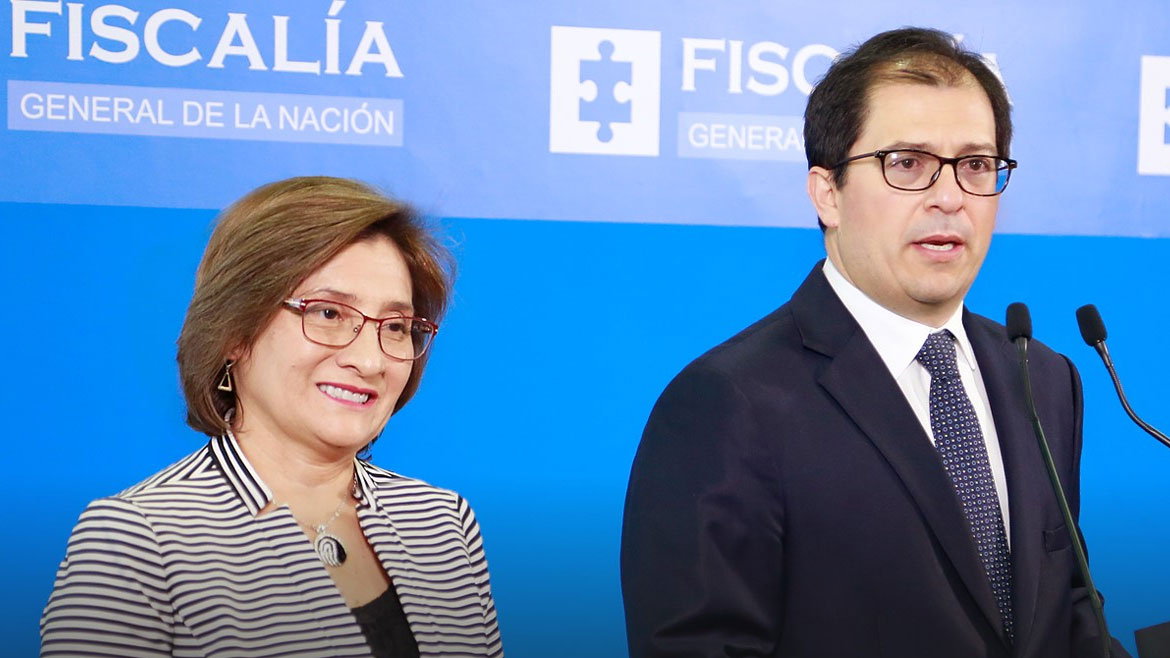We find ourselves in the midst of a burgeoning corruption scandal that has ensnared Colombia’s Prosecutor General’s Office. The allegations are grave, suggesting that top prosecutors and police officials, including Deputy Prosecutor General Martha Marcena, are implicated in a cover-up of organized crime activities.
This week several media reporters are disclosing the investigations that point to Barbosa’s team and himself, after other prosecutors of the case, revealed that the Prosecutor General’s Office may be involved in the act of hiding conversations or making delays over more than 200 cases related with murders, drug trafficking and kidnappings occurred in the last 15 years.
The Accusations
The scandal first came to light in February, when Ana Catalina Noguera, the prosecution’s former financial crimes chief, and Colonel Ricardo Duran, the former chief of the National Police’s international cooperation unit, were arrested on corruption charges. The charges suggest that these officials were favoring high-ranking mafia figures and the paramilitary organization AGC (Autodefensas Gaitanistas de Colombia).
The Key Players
The case against Noguera has brought several notorious figures into the spotlight. These include Carlos Ramon Zapata, also known as “El Medico,” a former member of the Medellin Cartel and paramilitary group “Los Pepes,” and Gabriel Puerta, another former member of the Medellin Cartel. Other implicated individuals include Ignacio Alvarez, a.k.a. “Big Brother,” a former member of the Norte del Valle Cartel, and the Cifuentes Clan, former members of the Medellin Cartel and the Sinaloa Cartel.
The Fallout
The fallout from these allegations has been significant. A key witness in the Noguera trial, “El Medico,” has accused Mancera, Daniel Hernandez, the prosecution’s alleged “judicial hitman,” and former anti-corruption prosecutor Daniel Cardona of having ties to multiple mafia figures. Moreover, a senior prosecution investigator, Fernando Rodrigo Romero, has accused Hernandez of blocking a 2019 request to arrest 14 reported businessmen for their alleged involvement in over 20 assassinations in the northern Magdalena and Cesar provinces.
This video is the key in this case and is the main testimony from Mauricio Rodriguez, about alleged electoral fraud in the north of Colombia, homicides related to drug cartels, and the way how the Prosecutor General’s Office is avoiding his resolution to solve this case.
The Response
In response to these allegations, Mancera has defended her controversial subordinate and denied the existence of a list of 200 homicides, which Romero claims is due to failures to follow up on tips by informers and victims. The prosecution has denied access to the press conference to La Nueva Prensa and only admitted television program Noticias Uno after allegations Mancera would only talk to media considered loyal.
The Investigation
Despite the multiple corruption allegations, neither Mancera nor Hernandez have been linked to the internal investigation carried out by prosecutor Mario Burgos. This raises questions about the transparency and integrity of the investigation process.
The investigation into these serious allegations is being led by prosecutor Mario Burgos. However, despite the mounting evidence and the severity of the accusations, neither Deputy Prosecutor General Martha Mancera nor Daniel Hernandez, the prosecution’s alleged “judicial hitman,” have been officially linked to the investigation. This has raised eyebrows and sparked concerns about the transparency and integrity of the investigation process. The absence of these key figures from the investigation’s purview has led to questions about whether all potential avenues of inquiry are being thoroughly explored. The public and the international community are closely watching the developments, hoping for a comprehensive and impartial investigation that can bring the truth to light.
What to expect from the legal system?
This scandal has put Colombia’s legal system under intense scrutiny. The allegations, if proven true, could have far-reaching implications for the country’s fight against organized crime and corruption. It is a situation that demands close attention and thorough investigation.
As the accusations are flooding around the Prosecutor General’s Office, Francisco Barbosa’s taking a long trip around Europe, avoiding for some days any culprit or giving a proper response to Congress, his natural judge. In the meantime, the sense of despair is taking more advantage of the Colombians and the feeling that the justice country is in the hands of a maniac of power and low resolution or willing to make a good prosecution of all the allegations made.
